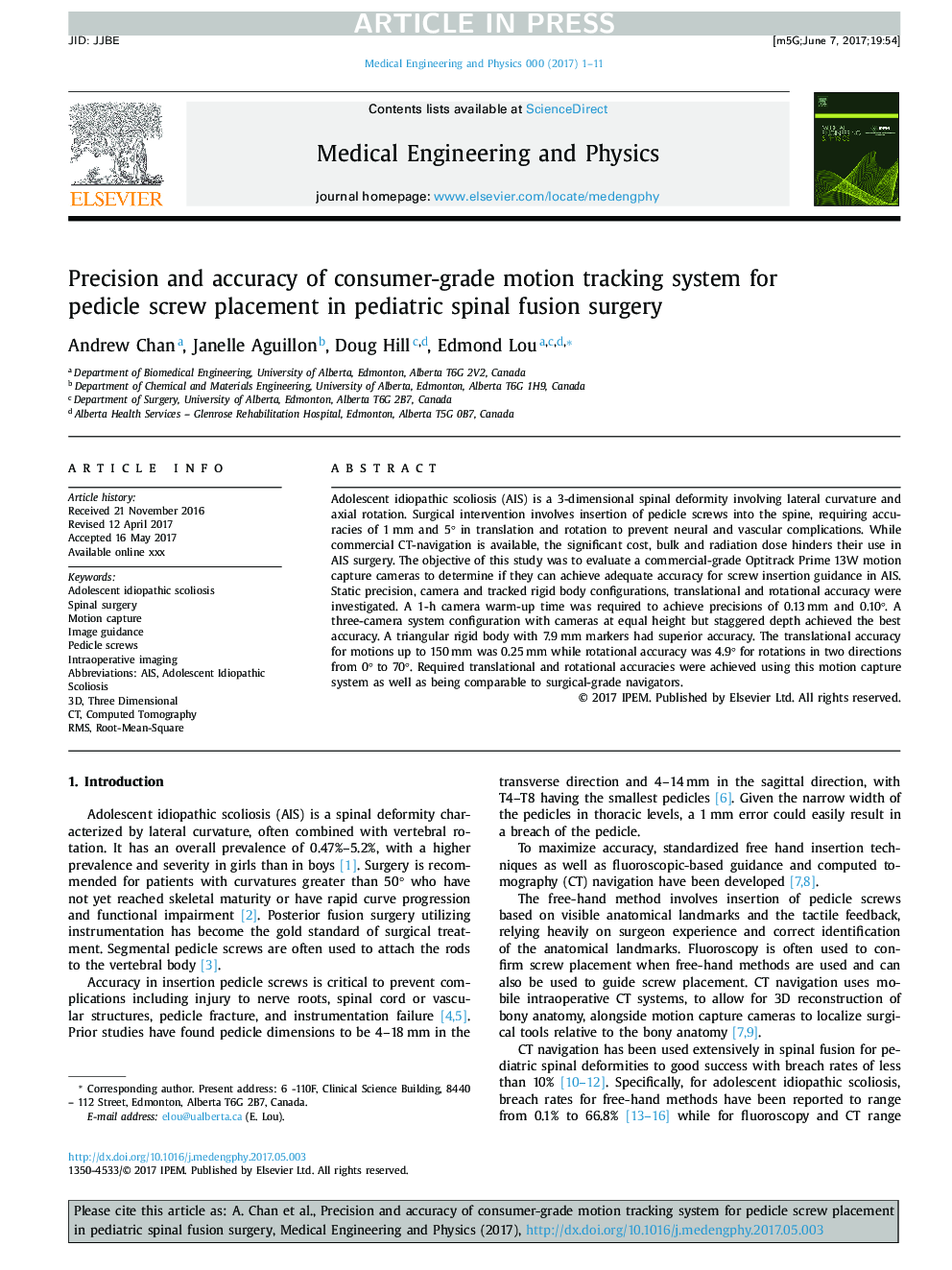| Article ID | Journal | Published Year | Pages | File Type |
|---|---|---|---|---|
| 5032619 | Medical Engineering & Physics | 2017 | 11 Pages |
Abstract
Adolescent idiopathic scoliosis (AIS) is a 3-dimensional spinal deformity involving lateral curvature and axial rotation. Surgical intervention involves insertion of pedicle screws into the spine, requiring accuracies of 1 mm and 5° in translation and rotation to prevent neural and vascular complications. While commercial CT-navigation is available, the significant cost, bulk and radiation dose hinders their use in AIS surgery. The objective of this study was to evaluate a commercial-grade Optitrack Prime 13W motion capture cameras to determine if they can achieve adequate accuracy for screw insertion guidance in AIS. Static precision, camera and tracked rigid body configurations, translational and rotational accuracy were investigated. A 1-h camera warm-up time was required to achieve precisions of 0.13 mm and 0.10°. A three-camera system configuration with cameras at equal height but staggered depth achieved the best accuracy. A triangular rigid body with 7.9 mm markers had superior accuracy. The translational accuracy for motions up to 150 mm was 0.25 mm while rotational accuracy was 4.9° for rotations in two directions from 0° to 70°. Required translational and rotational accuracies were achieved using this motion capture system as well as being comparable to surgical-grade navigators.
Keywords
Related Topics
Physical Sciences and Engineering
Engineering
Biomedical Engineering
Authors
Andrew Chan, Janelle Aguillon, Doug Hill, Edmond Lou,
